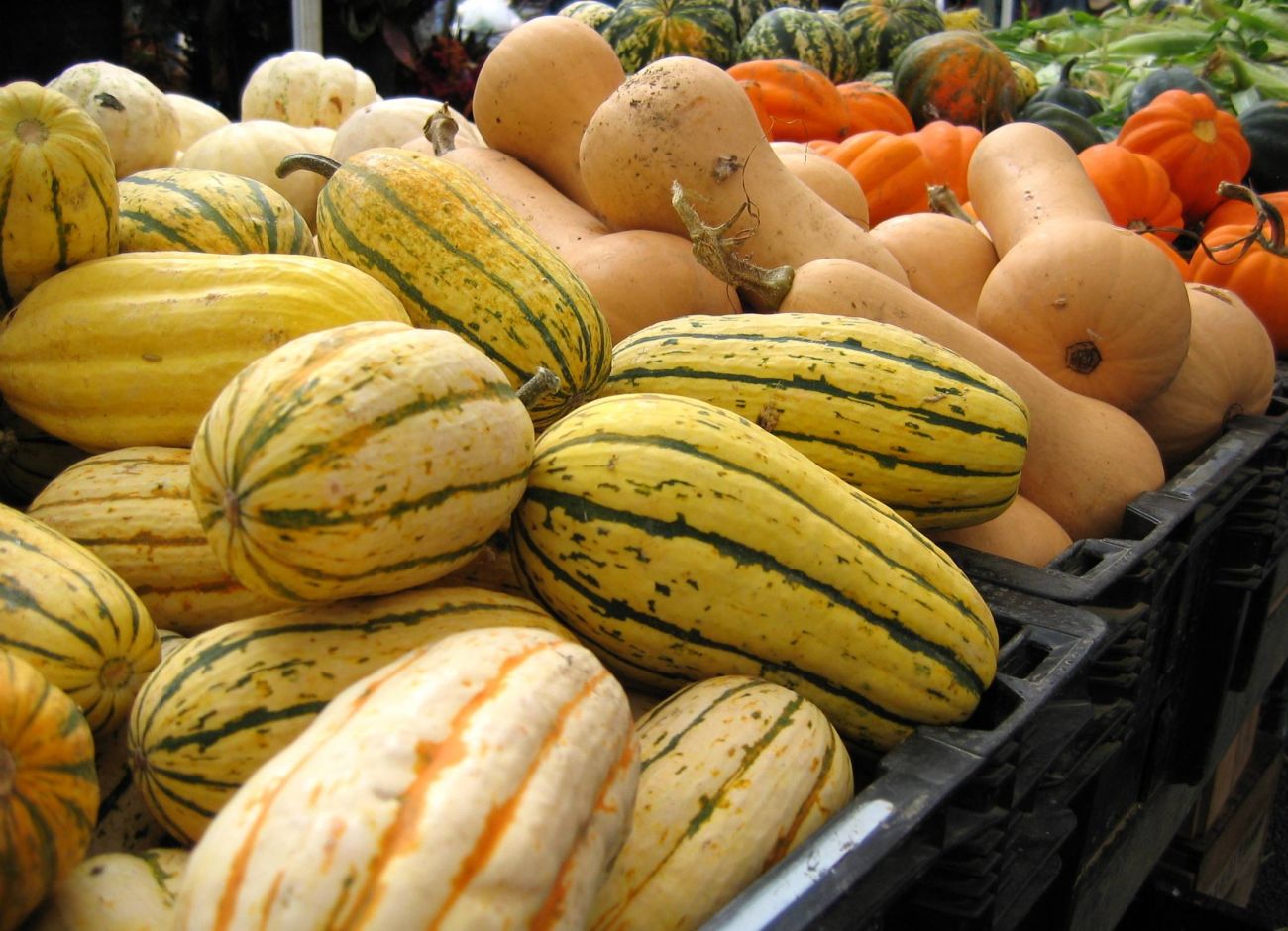Stock up on winter squash this year to receive many health benefits! Squash contains a number of essential nutrients that can play an important role in your diet.
What are the health benefits?
Beta-carotene, a powerful antioxidant that the body converts to vitamin A, is highly abundant in winter squash. Beta-carotene protects cells against damaging free radicals, thus potentially minimizing your risk for cancer and heart disease while also protecting your vision, immune system and skin. Beta-carotene is responsible for the bright orange color in many fruits and vegetables, including winter squash, sweet potatoes, red pepper, cantaloupe, apricots, and mangos. Generally, the brighter the orange color of the fruit or vegetable, the higher the beta-carotene content. Winter squash is also a good source for vitamin C, iron and fiber.
What exactly is winter squash?
There are many different varieties of winter squash and all have hard skins. Butternut, pumpkin, and spaghetti are the most popular forms. However, other types of winter squash include banana, acorn, turban, and delicata.
Choosing your squash:
Choose a blemish-free squash that has a hard rind, feels heavy, and has the stem in tact. The skin should be dull and matte. Store in a cool pantry or cabinet. Squash can be microwaved, baked, steamed or incorporated into many different recipes.
Fun fact:
When colonists arrived in North America, they had never seen squash. The Native Americans had been eating it for many centuries so the English name stems from their word, askutasquash.
Incorporate winter squash into your diet with this delicous soup recipe!
